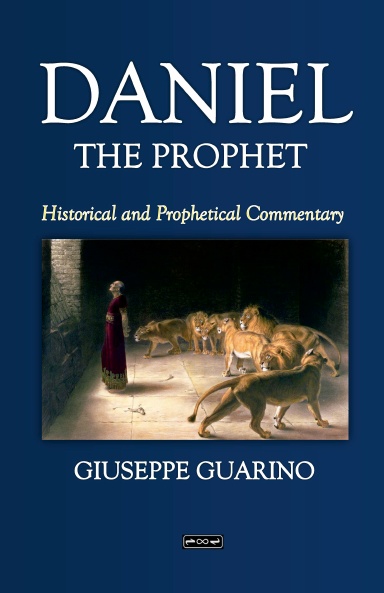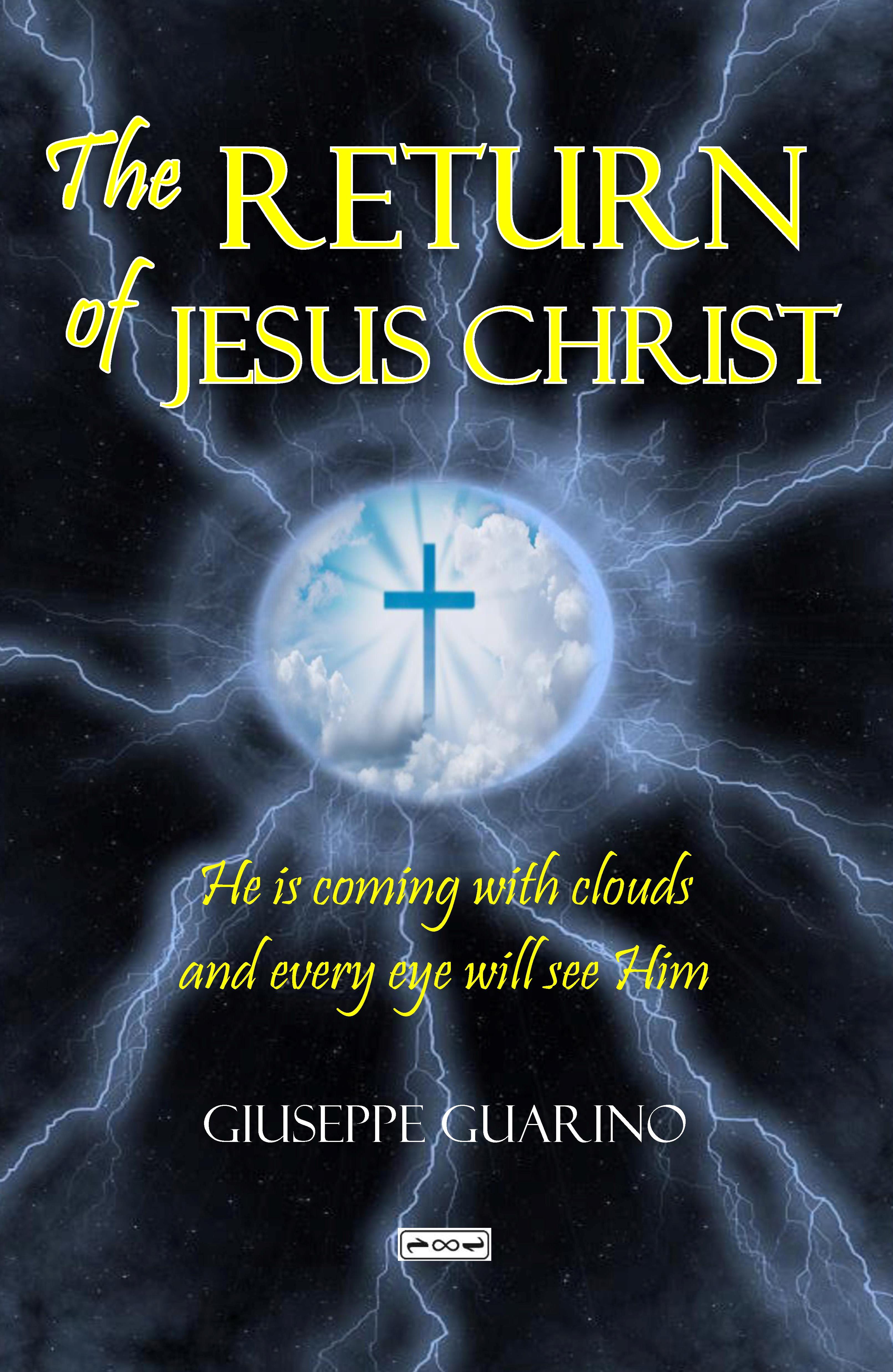The Lord’s return in the early church
Lately I’m reading incredible things about biblical prophecies. Yet, the teaching of the early Church has survived in many texts, easily accessible today thanks to the internet. It is true that there are contrasting opinions on some (minor, in my opinion) details, but there is a unanimous overall view in evangelical churches about the events that will precede the return of Jesus, and this view reflects the faith of the Christian Church since its beginnings: let us stop blaming the Council of Nicaea for all the faults of Christianity!
This article aims to demonstrate beyond any reasonable doubt the coherence of the “futuristic” interpretation of Scriptures regarding the return of Jesus and the reality of the manifestation of the Antichrist that will precede it.
I do not support or promote any new theory or sensationalistic interpretations of the Word of God.
The most beautiful thing someone can say about my books and studies is that there is nothing new, nothing that was not already known, and that the Church has not taught since its origins. We have also seen that what we have said is also shared by the Catechism of the Catholic Church – unfortunately little known, if not completely ignored, by the believers belonging to that confession.
In this paragraph, I want to demonstrate the continuity of what we have said here with what the early Church taught.
The so-called “Fathers of the Church” are usually overrated – in my opinion, of course – by the Catholic Church, but at the same time, they are too neglected by other confessions. I believe that a wise middle ground is to be preferred – as often happens in life.
One thing is certain: the writings of the Christians of the first centuries are a precious testimony to the Truth, second only to the New Testament.
Let’s see what these ancient witnesses of our faith have to say about the return of Jesus and the events associated with it.
Clement’s letter dates back to 95/96 AD. It is a letter written from the church of Rome to that of Corinth. Here we find the expectation of the return of Jesus.
“And he announces to us, ‘Behold, the Lord is coming and his reward is with him to render to each one according to his works.’”
The Didache is one of my favorite writings. Its composition date is not known exactly, because it was not indicated in ancient times. Some, and I agree, believe that this writing is very old, at least in its essence. Some date it to 50 AD, therefore contemporary with the apostolic writings of the New Testament. However, others go further, into the first century and some until 150 AD.
“In the last days, false prophets and corrupters will abound, and because of this the sheep will be transformed into wolves and love will turn into hatred. Iniquity will grow, and they will hate, persecute and betray each other. And the seducer of the world will appear as a son of God and will perform signs and wonders, and the earth will be given into his hands and he will commit abominations such as have never been done before. All humanity will be put to the test and many will apostatize and perish. But whoever perseveres in their faith will be saved from the cursed one. And then a sign of truth will appear: first the sign of the opening sky, then the sign of the sound of a trumpet, and thirdly, the resurrection of the dead, but not of all, rather, as it has been said, the Lord will come and all his saints with him. Then the world will see the Lord coming on the clouds of heaven.”
The early church had a very sober yet clear vision of biblical prophecies. The teaching focused on the expectation of the Lord’s return and the judgment that would follow – is this not what we read in Scripture? There was also this connection between the return of Jesus and the appearance of the Antichrist that would precede it.
I don’t think there is a Christian confession that cannot endorse what is stated in the Didache about the return of Jesus, and I believe that this continuity of faith is really important. Not decisive, but certainly not negligible.
The so-called Epistle of Barnabas was composed at some point between 70 and 135 AD. It is a beautifully written document. Among the many beautiful testimonies of Christian faith, we read: “The day is near when everything will perish together with the evil one. The Lord is near with his reward.”
The writings I have mentioned so far are part of the so-called Apostolic Fathers. I recommend it to anyone who wants to deepen their understanding of the wonderful simplicity and strength of the faith of the Church in the first and second centuries.
In the second half of the second century, the conversions of intellectuals began, who found in Christianity a faith that could answer the deepest questions of human beings. These intellectuals, once they became Christians, almost naturally became apologists, defenders of the Christian faith in a world completely immersed in Greco-pagan culture.
Justin died a martyr and lived between 110 and 165 AD. He was indeed an apologist, both with pagans and Jews. His “Dialogue with Trypho” is a masterpiece that I recommend everyone to read. In addition to this, two of his apologies have also come down to us. I will quote a passage from the first one:
“Since, then, we prove that all things which have already happened had been predicted by the prophets before they came to pass, we must necessarily believe also that those things which are in like manner predicted, but are yet to come to pass, shall certainly happen. For the prophets have proclaimed two advents of His: the one, that which is already past, when He came as a dishonoured and suffering Man; but the second, when, according to prophecy, He shall come from heaven with glory, accompanied by His angelic host, when also He shall raise the bodies of all men who have lived, and shall clothe those of the worthy with immortality.”
Hippolytus lived between 170 and 236. Although he was originally from the East, he moved and lived in Rome. He wrote a very interesting treatise on the Antichrist.
Hippolytus agrees that the last of the seventy prophetic weeks of Daniel 9 is reserved for a future fulfillment, writing: “…the last week that is to be at the end of the entire world.”
Not only is his writing useful, it is even precious; it is also very beautiful. This is what he affirms: “Two comings of our Lord and Savior are described in the Scriptures. One is his incarnation, which occurred without honor because of his humiliation, as Isaiah had spoken of beforehand… But his second coming is announced as glorious, when he will descend from heaven with his angels, and in the glory of the Father, as the prophet said: ‘you will see the King in glory’ and ‘I saw one like a Son of Man coming with the clouds of heaven’.” Hippolytus quotes Isaiah 53:2-5, 33:17, and Daniel 7:13-14.
The faith of the Church today is the same as the Church of two thousand years ago. There are no denominations or confessions, but only individuals who live this hope and others who neglect it – and this within all churches. In fact, in the parable of the ten virgins – who represent the church at the return of Christ – half are caught by surprise, found unprepared for the second coming of the Lord as King and Judge of this world.
Irenaeus was Bishop of Lyon and lived between 120 and 202 A.D. His majestic work Against Heresies is an apology of the authentic faith of the Church against Gnostic doctrines in five volumes. Although prophecy is not the main topic of his writing, we find references to the return of the Lord and the prophecies connected to that event.
In the fifth book we read: “Even Daniel, who was eagerly awaiting the end of the last kingdom, the ten kings, among whom the kingdom of men would be divided, and among whom the son of perdition would appear, declares that the ten horns will rise from the beast, and that another little horn will rise among them… for three years and six months, during which time he will reign on earth… Now three years and six months constitute half of the week.”
Irenaeus also referred to the fulfillment of the prophecy on the last week of Daniel, which referred to the period immediately preceding the return of Jesus. His testimony is particularly important because he was a disciple of Polycarp, who had personally known the apostle John, author of the Book of Revelation.
As you will easily realize, I have learned from the early Church the simplicity and power of a living and true faith in the certainty of the truth of God’s Word, which promises us that one day Jesus will return. The rest are details, interesting, but often too emphasized and discussed to extremes that seem to make us lose sight of the authentic object and meaning of the prophecies contained in the Bible: “the testimony of Jesus is the spirit of prophecy.” (Revelation 19:10)
Jerome was born in 347 and died in 420 AD. His most famous work is his translation of the Bible into Latin, the so-called Vulgate. But he also wrote a commentary on the book of Daniel, which I have read and studied in the translation by Gleason L. Archer (1916-2004), originally published in 1958 by Baker Book House. Jerome’s commentary is undoubtedly the best and most complete I have ever read on the book of Daniel. And in my opinion, it is also the most authoritative.
His commentary on chapters two and seven of Daniel confirms what we have said in our study.
“We must also agree with the traditional interpretation of all Christian commentators who affirm that at the end of the world, when the Roman Empire has been destroyed, there will be ten kings who will divide the Roman world among themselves. Then an eleventh king will appear… he is the man of sin, the son of perdition, who will dare to sit in the temple of God and exalt himself as God.”
The authoritative interpreter continues: and the saints “…will be given into his hands for a time, times, and half a time. ‘Time’ equals ‘a year.’ The word ‘times,’ according to the Hebrew language (which also has the dual number), represents ‘two years.’ Half a year means ‘six months.’ During this period, the saints will be under the power of the Antichrist…”
This is the testimony of the early Church.
This is the testimony and expectation of the Church of all times:
MARANATHA.
If you want to know more about Bible Prophecies

|

|
Coming soon:

